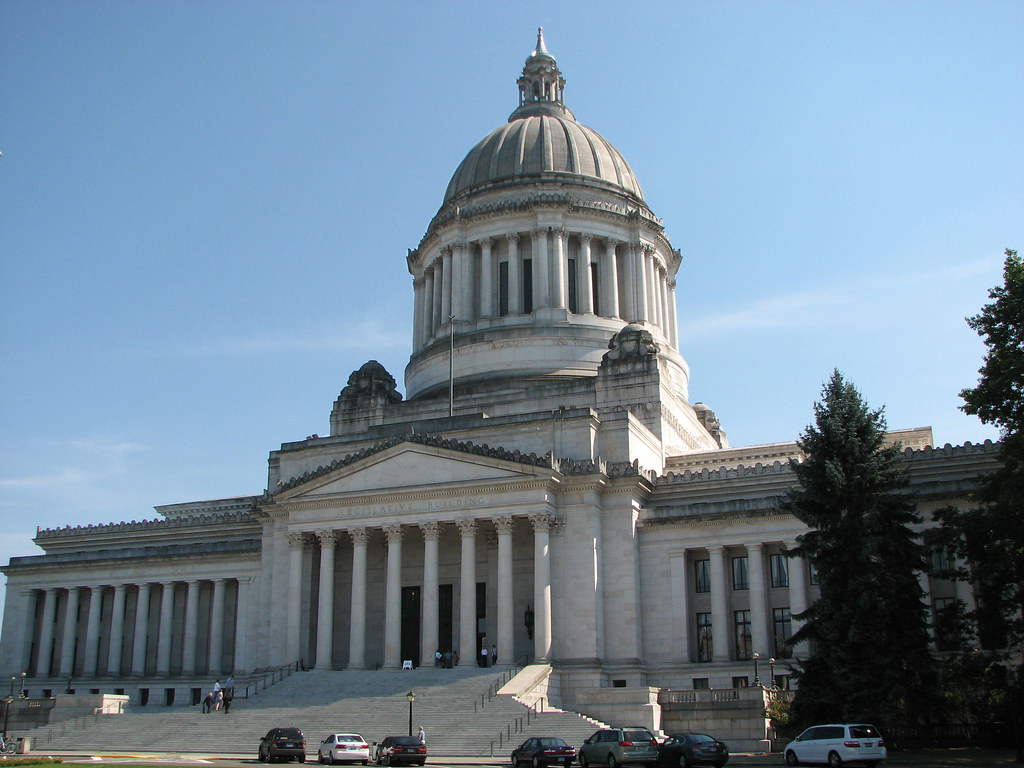Washington State Legislature takes aim at local school control with bills to centralize control and mandate DEI curricula.
By Eileen Griffin
The Washington State Legislature is advancing two bills that would impose curricula mandates on public schools.
The legislation would allow the state Superintendent of Public Instruction to mandate what materials schools are allowed to use, regardless of local decisions, The Center Square reports.
House Bill 2331 would give the state total power over educational materials. If a school chooses to use something the Superintendent does not like, he has the authority to withhold state funding from that school.
Schools will be required to use what is mandated by the state and coerced to do so through the funding source. A process for filing complaints against any individual who violates this policy is also included in the bill.
HB 2331 requires that schools promote, “culturally and experientially representative materials.” Local school boards will no longer have control over textbooks or instructional materials.
Similarly, Senate Bill 5462 also seeks to remove local school authority over education materials. Schools are mandated to implement “inclusive learning” highlighting people from “marginalized groups.”
Senate Bill 5462 mandates that all public schools teach about the contributions to, and history of, LGBTQ+ people, The Seattle Times reports.
Marko Liias, (D-Edmonds) the main sponsor of SB 5462, is part of the Washington State Legislature LGBTQ Caucus. He told The Seattle Times that “notable LGBTQ+ figures” are not always included in current instruction.
“At a basic level, when you see yourself in what you’re learning, you’re more engaged and invested in the learning process,” Liias said.
“The legislature further recognizes that state law requires the state learning standards to be periodically updated to incorporate best practices in ethnic studies,” the bill states. “The legislature intends to build on this duty by directing the office of the superintendent of public instruction, in consultation with the Washington state LGBTQ commission, to review and update relevant state learning standards to include the histories, contributions, and perspectives of LGBTQ people.”
Local school boards are directed to adopt policies in compliance with the mandates from the state capital. To ensure that the dictates are met, each educational service district is required to designate an individual to be the site’s “regional inclusive curricula coordinator.”
That person is expected to ensure that schools incorporate the state directives. He or she is empowered to “ensure that diversity, equity, and inclusion are interwoven throughout curricula.”
Teachers will also be provided with professional training coordinated by the regional inclusive curricula coordinator, so they are well versed in the requirements and process for following the state curriculum directives.
During the January Senate hearing, Liias described being inspired when he attended a rainbow alliance meeting at a local middle school. He had the opportunity to talk about work he and other elected officials were doing in support of the LGBTQ community.
Liias said that the bill was important so all school children can hear about the histories and the stories of LGBTQ people.
“Here we go again,” said state Sen. Brad Hawkins (R-E. Wenatchee) at the Senate hearing. “The Washington State Senate is trying to become the Washington State Senate School Board.”
“This isn’t as the prime sponsor mentions just sort of suggesting to school districts that they consider this,” Hawkins said. “No, this is a mandate on all 295 different school districts.”
Hawkins said that districts already have oversight by the school board and that funding comes from a number of sources, not just the state.
“They are overseen by their locally elected school board members and administered by their school superintendents,” said Hawkins. “It seems like the trend is to take more and more discretion away from the local communities and force feed stuff from the legislature onto all 295 school districts.”
Sen. Jim McCune (R-Graham) also spoke against the bill at the same hearing.
“This bill actually will start to force parents to leave schools,” McCune said. “It is a very controversial bill. This bill takes away local control and forces school boards—this will take away parents’ rights.”
McCune said the mandated teaching will encourage racism and further divide communities when schools should focus on academics.
“These liberal progressive policies will continue to sacrifice academics in our state for the political agendas,” said McCune. “We already know we have a failing school system and we need to work on these academics to bring them up.”
“Since 2019 the state legislature has passed laws encouraging school districts to teach the false and divisive Critical Race Theory (CRT) and Diversity Equity and Inclusion (DEI) in public schools,” Liv Finne, the director of the Center for Education wrote in a blog post. “Many local schools object to adopting textbooks and materials that promote harmful ideas to children.”
Both SB 5462 and HB 2331 will encourage the teaching of leftist ideology regardless of the preferences of local school boards, teachers, and parents, say critics. Locally elected school boards will be replaced with centralized, bureaucratic control over decisions affecting children and parents across the state.
“Sponsors of the bill (HB 2331) seek to punish school districts for exercising local control over classroom curriculum and materials,” Finne wrote.
SB 5462 has passed the Senate and is now in the House. HB 2331 has passed the House and is now working through the Senate.
For more great content from School Reform News.
